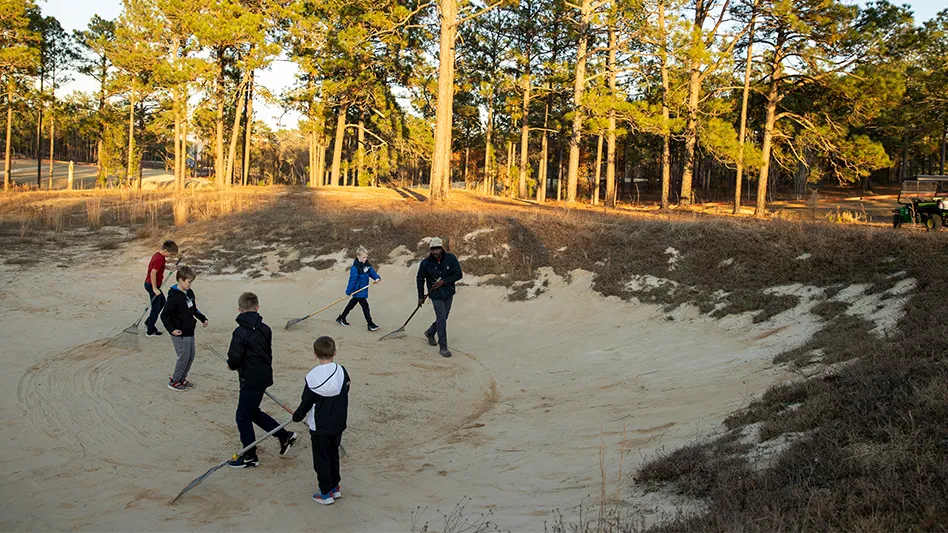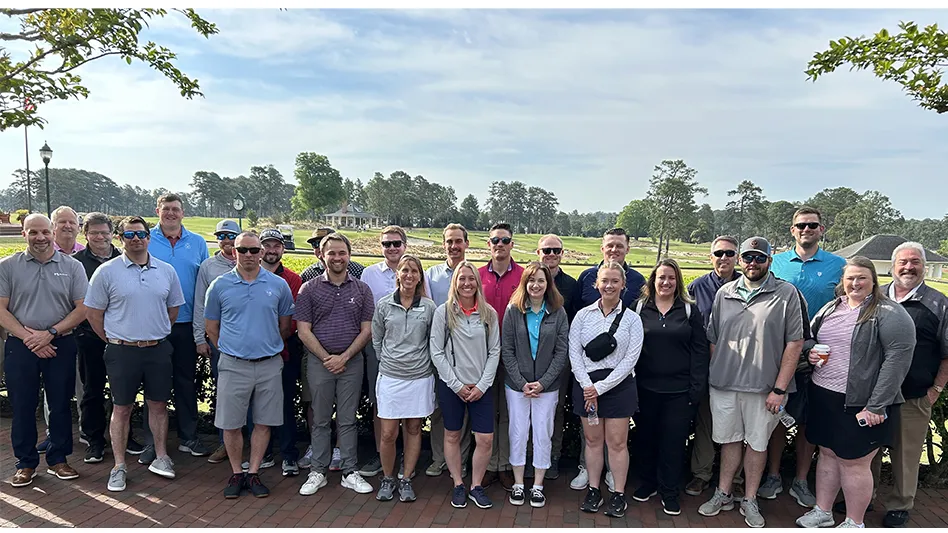
Shawn Emerson opened the gates for us a few weeks back at Desert Mountain Club, where he has worked as director of agronomy for the last quarter of a century or so, for three days of course tours, construction and renovation conversation, and plenty of stories.
Our packed October issue includes a story about how Emerson and his team tackled the simultaneous renovation of the classic Renegade course and construction of the new par-54 Seven, as well a look into burgeoning water crisis in Arizona — and perhaps much of the West — but there were still plenty of great Emerson lines about golf and life in general that we wanted to share. So here. Consider this a preview of sorts for our next issue. (The format, for the record, is inspired by What I’ve Learned, for years the greatest department in Esquire or any other magazine, where the spotlight is on the answers and the interviewer gets the heck out of the way.)
If I was going to make a mistake, I wanted to do it by doing something rather than not doing something. I’m so afraid of failing that I fear not to fail — meaning, I don’t want to fail, but I have to keep taking steps out there to learn. You learn more from failing than from success.
Keep pushing the envelope, but in a manner in which, if you fail, nobody else knows you fail. Try something small first.
The crew starts at 5:30. I’m here about 7:30. They don’t want me here any earlier anymore.
Everything we do at Desert Mountain is tracked. Everything. And then we come up with a plan to execute it.
I’m a baseball guy. The philosophy is how to get more with as few resources as possible. Most of my superintendents came from the sports world. We feel like we are a team. We put players out there and you have to figure out statistically who is your best player.
The great superintendents of our time, they were so great on feel and touch. That’s just not our mentality today. You can’t make an arbitrary decision. Everything we have now is verified, and we base our decisions on that information. That’s how I feel the industry is going.
How often do we really need to mow fairways? When I started in this business, we used to mow fairways five days a week. I reduced it a few years ago, using the tracking system, down to three. How many complaints do you think I got from the membership? They didn’t know.
Why work eight-hour workdays? Because at 12:30, the whole course is covered with golfers. Where can you go? By tracking it, we could see people and mowers were just standing. So we work six and a half hours, and then one day a week, we work a longer day. Our guys never stop. They’re in and out.
The bigger something gets, the more you have to break it into smaller elements.
People think efficiency means saving dollars. That could not be further from the truth. You spend money to make money.
In my whole career, the more I was over budget, the more satisfied the membership was. Every time I was under budget, my members didn’t like me but my bosses loved me. So I’m stuck in the middle all the time.
You should always be $1 under budget. That was always my goal. Not $10, not $100, not $1,000. One dollar under budget.
I don’t think 80 percent of the golf courses in this country have enough money.
Don’t stay still. Keep evaluating yourself and making sure you’re current to what’s going on. Just because we did it that way doesn’t mean you have to continue. It may have been more efficient five years ago, but today it may not be.
My Dad’s line was, If you’re 30, know someone who’s 40. If you’re 40, know someone who’s 50. If you’re 50, know someone who’s 60. They’ll tell you what we’ve done. They’ll tell you your failures.
A mistake does not become an error until you refuse to correct it.
Two things bad for your heart: Running uphill and running down people.
Don’t let convenience interrupt how you operate.
Persistence to purpose leads to success.
This is a people job first and a turf job second, and if you ever get it mixed up, you probably will not be successful.
I would rather hire you six months late for a position than one day early. I’m going to put you somewhere when you’re ready. I don’t want you to take a step backwards. I want you to be successful.
I can’t believe I’ve made it this long. The secret, I think, has been evolving. I’ve had a hard time turning over more of the reins. I think once I get through converting the golf courses to the warm- and the cool-season turf, then I’ll have to make a decision whether it’s time for me to lead us through or have somebody else do it. But that doesn’t bother me. I’m not worried about that. I have to decide how I want to spend those 10 years, right? I think I’ve had an impact on the industry by being at Desert Mountain, so I guess I have to make a decision. Do I want to stay at Desert Mountain? Or do I want to work in other areas? And it might not be my decision.
The everyday grind is tough.
You have to end the day right and prepare last night for today. You shouldn’t be disorganized in the morning.
If you told me I could do anything besides golf, I would probably be a minor league baseball facility manager. I think I’d like that.
I have to do something, or you’d think I do nothing.
Latest from Golf Course Industry
- USGA opens Golf House Pinehurst
- Bernhard Academy expands leadership team
- Another record year for research
- The Highlands pays more homage to Ross
- Audubon International adds veteran superintendent to leadership team
- South Florida simmer
- Devising safer landings
- SiteOne adds Durentis to product offerings





